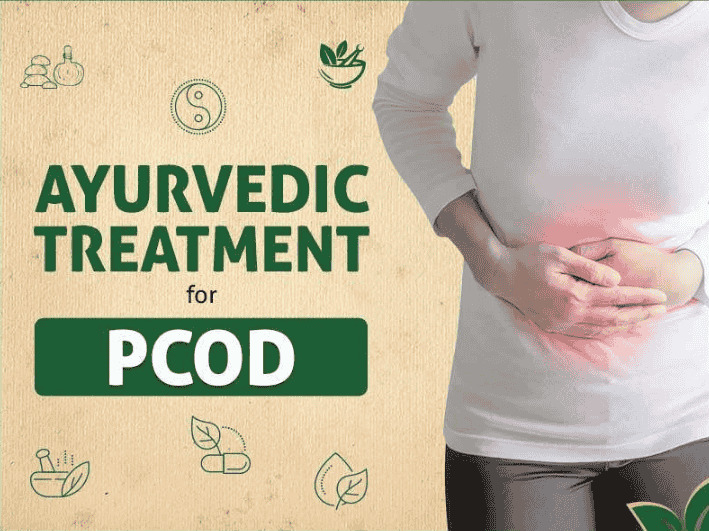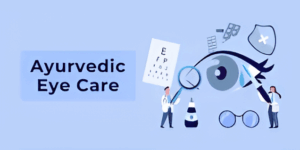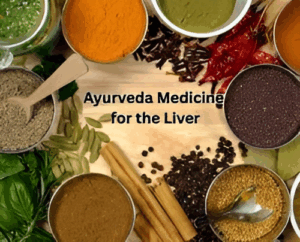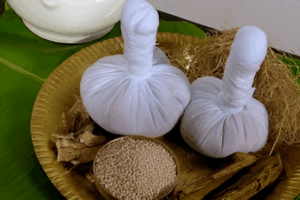Polycystic Ovary Disease (PCOD) is one of the most common hormonal disorders affecting women worldwide. It leads to irregular menstrual cycles, excessive hair growth, acne, and even infertility in severe cases. Conventional medicine often relies on hormonal treatments, but Ayurveda offers a holistic and natural approach to treating PCOD from its root cause.
In this blog, we will explore how Ayurveda for PCOD plays a vital role in managing hormone imbalance naturally. By understanding the root cause of PCOD and applying Ayurvedic principles, women can achieve better reproductive health and long-term wellness.
Understanding PCOD and Its Impact on Women’s Health
PCOD, also known as Polycystic Ovary Disease, is a hormonal disorder where the ovaries produce higher-than-normal amounts of male hormones (androgens). This imbalance can lead to:
- Irregular or missed periods
- Excessive hair growth on the face or body
- Acne and oily skin
- Weight gain or difficulty in losing weight
- Infertility or difficulty in conceiving
The condition is often linked to insulin resistance, poor lifestyle, stress, and genetic factors. Addressing PCOD through conventional medicine may involve hormonal pills, but Ayurveda for PCOD focuses on balancing the body’s natural energies, known as doshas, and promoting long-term healing.
How Ayurveda Understands PCOD: The Dosha Imbalance
According to Ayurveda, PCOD is primarily caused by an imbalance in the three doshas — Vata, Pitta, and Kapha. When these doshas are not in harmony, it leads to hormonal imbalance, irregular ovulation, and cyst formation in the ovaries.
- Kapha Imbalance: Excessive Kapha leads to weight gain, slow metabolism, and ovarian cyst formation.
- Pitta Imbalance: Pitta imbalance causes acne, excessive hair growth, and mood swings.
- Vata Imbalance: Vata imbalance results in irregular periods, anxiety, and digestive issues.
By correcting these doshas, Ayurveda for PCOD helps to restore the body’s natural hormonal balance and promote reproductive health.
Ayurvedic Treatment for PCOD: Natural Remedies to Restore Hormonal Balance
Ayurveda provides a natural and sustainable way to treat PCOD by eliminating the root cause. The approach combines herbal treatments, dietary changes, detox therapies, and lifestyle modifications to correct hormonal imbalances.
1. Herbal Remedies for Balancing Hormones
Ayurveda uses powerful herbs that help balance hormones, reduce cysts, and promote healthy ovulation. Some of the most effective herbs in Ayurveda for PCOD are:
- Ashwagandha: Reduces stress and balances cortisol levels, which directly affects hormone production.
- Shatavari: Promotes hormonal balance, regulates the menstrual cycle, and boosts fertility.
- Turmeric: Has anti-inflammatory properties that help reduce cyst size and prevent new cyst formation.
- Guduchi (Giloy): Helps in regulating insulin sensitivity and managing PCOD symptoms.
These herbs work collectively to reduce the impact of PCOD on the body and promote overall well-being.
2. Ayurvedic Panchakarma Therapy for PCOD
Panchakarma is a purification therapy in Ayurveda that helps remove toxins from the body and restore the balance of doshas. Women with PCOD often accumulate toxins in their reproductive systems, which lead to irregular ovulation and hormone imbalance. Panchakarma therapy offers deep detoxification and purification.
The most effective Panchakarma therapies for PCOD are:
- Virechana (Purgation Therapy): Helps eliminate excess Pitta from the body, balancing hormones.
- Basti (Enema Therapy): Improves reproductive health by cleansing the intestines and uterus.
- Udvartana (Herbal Powder Massage): Promotes weight loss and reduces excess Kapha in the body.
When combined with a customized diet and lifestyle plan, these therapies bring quick and effective relief from PCOD symptoms.
3. Dietary Recommendations in Ayurveda for PCOD
A balanced diet plays a crucial role in managing PCOD naturally. Ayurveda suggests following a diet that pacifies Kapha and Pitta doshas to restore hormonal balance.
Foods to Include:
- Fresh fruits and vegetables
- Whole grains like barley, quinoa, and brown rice
- Nuts and seeds, especially flaxseeds and chia seeds
- Herbs like cumin, fenugreek, and coriander
Foods to Avoid:
- Processed and junk foods
- Dairy products
- Refined sugar and sugary drinks
- Caffeine and alcohol
By adopting an Ayurvedic diet, women with PCOD can see significant improvements in their menstrual cycles and hormone levels.
4. Lifestyle Changes for Managing PCOD Naturally
Along with diet and medication, Ayurveda emphasizes lifestyle changes to maintain hormonal balance. Here are some recommended changes:
Daily Exercise:
Regular physical activity such as yoga, brisk walking, or cardio helps regulate insulin levels and promote weight loss. Some yoga asanas like Bhujangasana (Cobra Pose), Dhanurasana (Bow Pose), and Baddha Konasana (Butterfly Pose) are especially beneficial in Ayurveda for PCOD.
Stress Management:
Stress can significantly worsen PCOD symptoms. Ayurveda recommends practicing meditation, deep breathing, and spending time in nature to reduce stress levels.
Adequate Sleep:
Getting at least 7-8 hours of uninterrupted sleep allows the body to regulate hormones and improve metabolic function.
5. Managing Weight with Ayurveda for PCOD
Weight gain is a common problem in women with PCOD. Ayurveda focuses on improving metabolism and reducing excess fat accumulation in the body through dietary changes and physical activity. Ayurvedic herbs like Triphala, Guggulu, and Punarnava are often recommended to improve digestion and reduce body fat.
Regular body massage (Abhyanga) with medicated oils like Kottamchukkadi Thailam can also help reduce excess fat and promote detoxification.
Why Choose Ayurveda for PCOD Over Conventional Medicine?
Conventional treatments for PCOD typically involve hormonal pills or surgery to remove cysts. However, these treatments often provide temporary relief without addressing the root cause of hormonal imbalance.
On the other hand, Ayurveda for PCOD treats the condition holistically by:
- Correcting the root cause of hormonal imbalance
- Detoxifying the body to promote natural healing
- Restoring healthy ovulation and menstrual cycles
- Promoting long-term health and wellness
Moreover, Ayurveda for PCOD focuses on a preventive approach, ensuring that the condition does not recur after treatment. This natural and sustainable approach makes Ayurveda a preferred choice for women seeking long-term relief from PCOD.
Conclusion: The Ayurvedic Perspective on PCOD
PCOD can significantly impact a woman’s physical, emotional, and reproductive health. However, Ayurveda for PCOD offers a natural and holistic approach to managing the condition by addressing the root cause and promoting long-term health. Through a combination of herbal remedies, detox therapies, dietary changes, and lifestyle modifications, Ayurveda helps restore hormonal balance and improve overall well-being.
If you are looking for personalized treatment for PCOD, consulting an Ayurveda doctor in Dubai can provide tailored solutions for your condition. Remember, balancing your doshas and adopting a healthy lifestyle are the keys to overcoming PCOD naturally.
Embracing the Ayurvedic Perspective can lead you toward a healthier, balanced, and cyst-free life.









